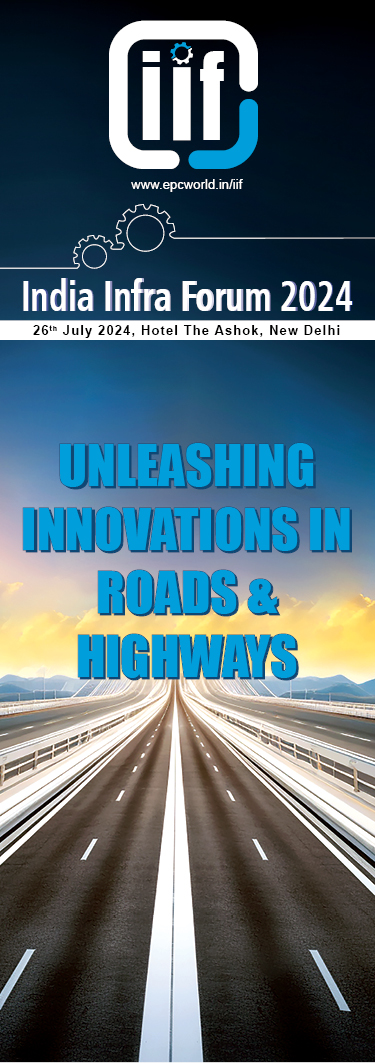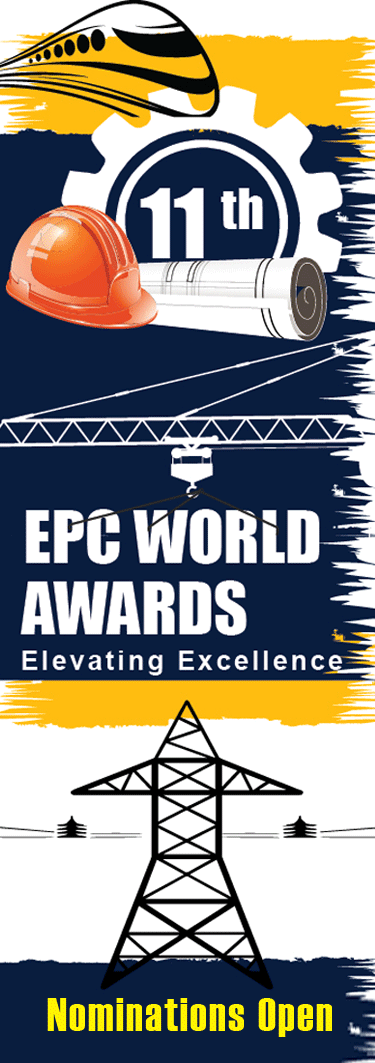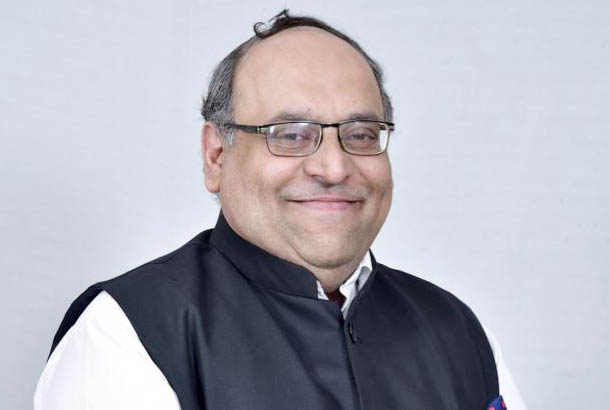CSR activities have the potential to bring in positive changes in the lives of the deprived sections of the society and the government has acknowledged it and has brought in various amendments to make CSR accountable, but still, it lacks teeth, if we go by reports. Your comments
The Companies Act 2013, which came into effect in 2014, made India the first country in the world with a statutory mandate for CSR. Further, the Ministry of Corporate Affairs recently brought in some provisions regarding unspent CSR funds and mandatory disclosure of CSR projects on companies’ websites, among others. The statutory mandate and the amendments were introduced to ensure that organizations also contribute towards inclusive growth of our society considering the huge magnitude of resources required to address the needs of the poor and marginalized sections.We strongly believe that corporate social responsibility (CSR) must be deeply entrenched in the value systems of corporates and not merely as a compliance requirement. Corporates must embrace CSR with a voluntary approach by imbibing it in their company philosophy and align it to the way that they run their business. At TKM, it has been a long journey of planning and executing interventions that have had positive impact on society. We have graduated from implementing one-time CSR projects to sustainable CSR. A focused approach and understanding of Plan Do Check and Act (PDCA) has been our way of implementing CSR.We keep improvising the process through innovative methods that directly translate to benefit the end users and instill ownership among the stakeholders.
Is the need for regulatory authority justified?
Give the issues of poverty, illiteracy, gender inequality and limited access to healthcare faced by many sections of our society, there is a need for corporate involvement alongside Government efforts in alleviating these issues. Hence, the Government is rightly moving towards a transparent, robust, and mandatory CSR regime. We strongly believe that social or community development should be a unified effort and responsibility of both corporates as well as the Government. Regulations will provide the guidance to implement CSR in the right way with the aim to fulfill the Sustainable Development Goals (SDGs). However, the onus is on the corporate world to not only comply but with greater efforts make their CSR initiatives sustainable and impactful.
The ongoing pandemic has devastated livelihood and has left the vast majority in penury. What are your CSR activities in the pandemic period to alleviate the suffering of the have-nots?
TKM has been at the forefront in supporting the needs of the local communities and various Government departments during the unprecedented event of Covid-19. To support the frontline workers, we have been providing logistical support through various measures such as providing buses to the health department of Karnataka, ambulances to Governments of Karnataka and Haryana and a mobile medical unit to the Indian Institute of Science for Covid testing. To protect the frontline workers, we contributed more than 3,500 Hazmat suits, 72,000 three-ply masks, 71,000 bottles of sanitizers and 12,500 examination gloves to healthcare workers, law enforcement and other relevant agencies in Karnataka. In addition, we handed overessential materials such as thermal scanners and fumigation equipment to the 100-bedded Covid hospital in Ramanagara. To help the daily wage workers, we distributed 3,500 food kits benefitting over 15,000 people. We also contributed an amount of Rs. two crore to the Karnataka Chief Minister’s Relief Fund to augment Government efforts to help the needy.To go beyond ensuring the wellbeing of our employees, we also reached out to their neighbourhoods by involving our employees in distributing 25,000 Sanjeevini health and hygiene kits that benefitted 1,00,000 people.
Apart from the local communities, TKM also supported its dealer partners,with a Covid package thereby minimizing job losses and disruption to their business so they could survive the Covid-induced lockdown. Further, in a unique initiative, TKM worked closely with a supplier partner, Stumpp Schuele and Somappa, to ramp up its production of face shields from the initial 275 units per day to over 17,000 units per day to meet the growing demand for protective equipment.
When we say CSR activities, it is quite often assumed some noble activities in tribal and rural areas. What are the CSR activities you conduct for the deprived people in the urban areas?
To empower deprived sections of society in the urban landscape, TKM has initiated several projects in the areas of education, health and hygiene considering these are among top challenges facing our cities. One such example is TKM’s efforts in the modernization of educational infrastructure through reconstruction of schools. Since 2001, TKM has been engaged with Government schools for constructing modern pucca (solid) school buildings with functional toilets; we have upgraded the infrastructure of11 Government schools in Karnataka positively impacting 2,362 students. Our engagement with the communities has shown that parents' trust in these Government schools has renewed and they now prefer to send their wards to these upgraded Government schools instead of private schools. In the domain of community healthcare, TKM has initiated a school-based health-monitoring programme, Shaale Makala Arogya, as a part of its interventions towards ensuring a healthy and disease-free childhood. The programme primarily focusses on the early detection of malnutrition, anaemia and eye diseases. During FY 2019-20, we could reach out to 109 schools covering 14,248 students and in FY 2020-21, more than 5,000 children have been covered. Based on a need assessment exercise conducted within our communities TKM undertook a pilot project and initiated the construction of a Primary Health Center at Byramangala, Ramanagara district in Karnataka. Further, in line with this need, TKM has taken up construction of community Health Centre in Bidadi.which will benefit an estimated 1,20,000 members. TKM efforts to bring about behavioural change through its project ABCD (A Behavioural Change Demonstration) has come in handy interms of safe hygiene practices during the pandemic. The project has brought a lot of difference in the community interms of usage of sanitation units, hand wash practices and other hygiene habits. This project now has been successfully handed over to Government which eventually became a case study for Harvard University.
The Government has introduced welfare schemes - be it last-mile connectivity, clean drinking water, power for all, healthcare, employment & education schemes, self-reliance, skill development - to uplift the tribal and rural citizens of the country. How are you aligning your CSR activities with Government initiatives for better benefits?
Through our voluntary CSR initiatives, we focus on meeting the commitment of our organization and our employees to do good for society and pertinent stakeholders in a scalable and sustainable manner. We have been implementing CSR activities in five thematic areas of education, environment, health and hygiene, road safety and skill development aligned to the need of the communities, national priorities and Sustainable Development Goals (SDGs) outlined by the United Nations. Further, our child-to-community approach aims to transform young minds into change agents who bring about a desired behavioural transition in their families and thereby their community.
For sustainability we ensure all our programmes are aligned with Government as well as the need of the community. We do not run parallel programmes as the Government and community members have to take over the programme forward after our exit, therefore, we ensure the programme are in synchronization with the Government and adoptable by the communities. In line with the above approach we undertook to provide clean drinking water in Ramanagara district, Karnataka where our manufacturing plants are located. The groundwater in Bidadi region in the district was contaminated as the villagers were dependent on the underground for domestic and agricultural consumption, water-borne diseases affected them. In 2012, we harnessed our CSR program to invest in the creation of adequate infrastructure to increase access to safe and affordable drinking water. We began installing RO water purification units in and around Bidadi. So far, we have installed 41 RO units in villages in and around our manufacturing facility in Ramanagara benefitting over 260,000 community members.
Another initiative in the education domain is Toyota Technical Training Institute (TTTI), launched in 2007, TTTI inculcates world- class skills training to youth from the economically weaker sections of the society in rural Karnataka and provides a comprehensive three-year residential program that focuses on their holistic development with knowledge, skill, body and attitude. Besides, students are given practical training on world renowned ‘Toyota Production Systems’ that are used in the various manufacturing processes at the Toyota plant in Bidadi. Since its inception, the institute has trained 632 students who have been gainfully inducted in the auto industry.The human development efforts through TTTI are also aimed at building self-reliance in the automobile industry by providing industry-ready talent equipped in emerging trades. In recognition of the highest levels of quality of education & training that is imparted, TTTI has been selected as one of the training institutes, under Japan India Manufacturing (JIM) skill transfer promotion program. Under this, Toyota Kirloskar Motor will be one of the Indo-Japanese companies that will help enhance the manufacturing base of India and contribute to Make-In-India and Skill India, through imparting training over the next 10 years with Japanese-style manufacturing skills and practices. Thus far, through our entire portfolio of sustainable community development interventions, we have touched over 18,00,000 lives and counting.
Please take us through your collaborations with NGOs and other players to provide better CSR to the target audience?
At TKM, we have a CSR Committee constituted through a Board of Directors resolution to ensure the implementation of CSR programmes on the ground. We also collaborate with implementation partners such as Non-Governmental Organisations (NGO)s for programme execution. NGOs have the expertise in implementation of CSR activities and ground visibility making them effective partners for CSR activities. The good intent of corporates must be complemented with NGOs that have the domain knowledge capabilities to ensure greater impact of CSR interventions. With aim of improving the operation excellence of NGOs, TKM started the first of its kind Social Academy of Learning by Toyota (SALT) in 2019-20, which aims to improve knowledge, skill and expertise of NGOs in critical areas.
Can you brief about the regulatory changes that have taken place in recent years and how it is benefitting/affecting your CSR activities?
Improving the effectiveness of CSR has always been a topic of discussion between various stakeholders over the last few years leading to a rethink on the policy front. The amendments are a way to ensure better compliance of the rules and to keep a check on the CSR activities of companies. They are aimed at further improving the ease of doing business, decriminalizing non-compliance with CSR provisions as well as to make the CSR framework more transparent. The provisions of the new rules seem to be more detailed and structured as compared to earlier rules. Allowing companies engaged in R&D activities of new Covid – 19 vaccines, drugs, and medical devices under CSR apart from their normal course of business is much appreciated. With the new rules, more responsibility has been set on the shoulders of the board to ensure proper implementation under the legal norms related to CSR.
How are you leveraging technology to get your noble CSR activities done effectively and, in a time bound manner? Can you share some instances with us?
We are using technology to track the progress of our CSR programmes on the ground; with the help of a technology platform, the status of our programmes is made available to all stakeholders. All our CSR projects have SMART (specific, measurable, accurate, realistic and time-bound) key performance indicators. Recently, we adopted real-time capturing of the data to ensure the effectiveness of the data capturing along with geo-tagging. Another tool we use is the Logic Framework Model that aids in effective monitoring of the entire implementation phase by checking if the project results (outputs and outcomes) are being met in a timely fashion. It also helps in assessing the risks and assumptions and creating a mitigation plan for the same. Moreover, it enables analysing the roles and responsibilities of various stakeholders and in the better management of the entire project.
Can you share a few success stories of your CSR activities?
Toyota has been continuously striving to create road safety awareness among school children since 2007. TKM started Toyota Safety Education Program (TSEP), an interactive awareness module with the objective to sensitize school children about road safety and make them responsible road users. We currently cover students from class 5th to class 9th in three key cities of Delhi, Mumbai and Bangalore. Considering the Covid-19 related challenges, road safety sessions are being conducted in e-learning modules. To make the sessions more engaging, we have introduced gamified assessment and Augmented Reality based experiential learning methods, competition at school, state and national levels. Forming clubs in all classes boosted the spirit of competition. The program also opened doors for students to exhibit their efforts to various stakeholders –UN, WHO, policy makers, AIIMS, PoliceDepartmentamong others.
TKM also started a Hackathon in 2020 for children of Delhi NCR region and Bangalore. Students of class 9th to 12th were encouraged to provide solutions on road safety issues. Over 600 teams in each of the location represented over 30 schools in aptitude and ideation rounds. To motivate and further engage young minds we involved the ‘Start your impossible’ brand ambassadors. Amit Kumar Saroha, a Paralympian, Asian Para Games medallist and an Arjuna Awardee and Dipa Karmakar, Indian gymnast, to intensify impact and reach. Overall, through TSEP we have successfully reached out to over 8,00,000 school children and through Toyota Hackathon we have touched nearly 3,000 students.
Further, iCARE is our unique employee volunteerism platform, wherein passionate employees are given an opportunity to contribute to society. For the first time, we were presented with the opportunity to rethink corporate volunteering by moving to a virtual format due to the pandemic. One of the most important elements of volunteering was the human interaction. With the pandemic, we realized that close interaction is not going to be possible for months to come. At the same time, there were many communities around us that were struggling. As an organization we responded to the challenge by mobilising our greatest asset - our people in a virtual format. Nearly 1,000 volunteers on-boarded and more than 60,000 lives have been touched.
In the next three years, how are you planning to take your CSR initiatives forward?
We will continue to take forward our CSR initiatives in the areas of education, environment, health and hygiene, road safety and skill development as they are aligned to the need of the communities, national priorities and the SDGs. We also remain committed to expanding our initiatives to bolster the fight against Covid-19 in the months ahead.Though we are consistent in terms of the CSR spending, the next couple of years is going to be unique due to the changed realities brought forth by Covid. We will strengthen our strategies to work on mid to long term plans, conduct need and impact assessment studies and continue our existing programmes with the best possible approach.






